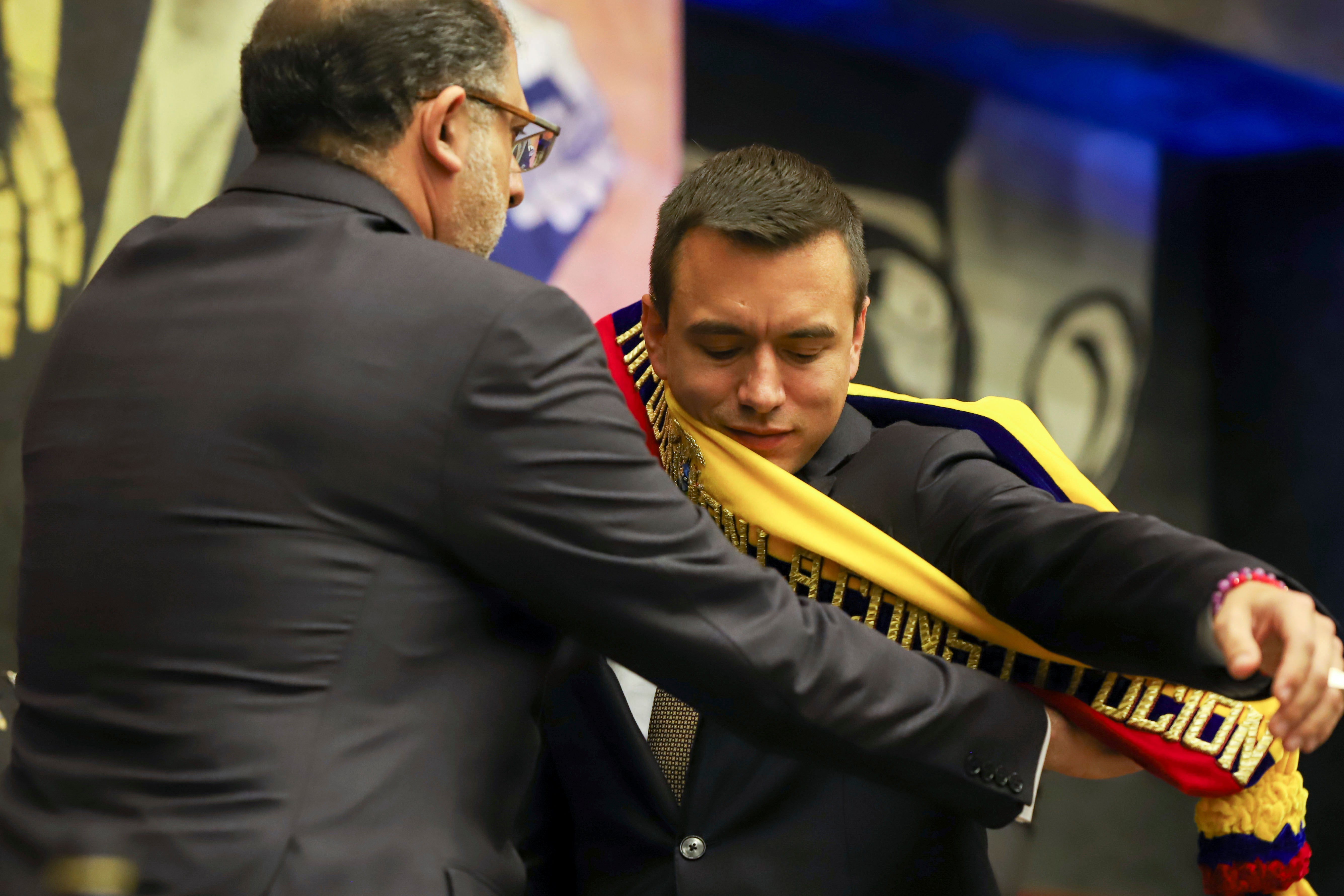Ecuador's newly sworn-in president repeals guidelines allowing people to carry limited drug amounts
Ecuador President Daniel Noboa — less than 48 hours into his term — has repealed controversial guidelines that eliminated penalties for people found carrying illegal drugs under certain amounts

Your support helps us to tell the story
From reproductive rights to climate change to Big Tech, The Independent is on the ground when the story is developing. Whether it's investigating the financials of Elon Musk's pro-Trump PAC or producing our latest documentary, 'The A Word', which shines a light on the American women fighting for reproductive rights, we know how important it is to parse out the facts from the messaging.
At such a critical moment in US history, we need reporters on the ground. Your donation allows us to keep sending journalists to speak to both sides of the story.
The Independent is trusted by Americans across the entire political spectrum. And unlike many other quality news outlets, we choose not to lock Americans out of our reporting and analysis with paywalls. We believe quality journalism should be available to everyone, paid for by those who can afford it.
Your support makes all the difference.Less than 48 hours into his term, Ecuador President Daniel Noboa on Friday repealed controversial guidelines established by the country’s left a decade ago that eliminated penalties for people found carrying illegal drugs under certain amounts.
Noboa’s decision fulfilled a campaign promise to fight drug trafficking. Consequences of the illegal trade, particularly cocaine, have kept Ecuadorians on edge as killings, kidnappings, robberies, extortion and other crimes reached unprecedented levels.
A statement from Noboa’s office announcing the move argued that the old guidelines “encouraged micro-trafficking” and characterized them as a “harmful element for Ecuadorian society.” Noboa also directed the ministries of interior and public health to develop “coordinated information, prevention and control programs on the consumption of narcotic and psychotropic substances” and to offer treatment and rehabilitation to “habitual and problematic occasional users.”
The guidelines were adopted in 2013 during the presidency of Rafael Correa under the argument that illegal drug use was a public health problem and users should not be sent to prison. The quantities used in the guidelines attempted to differentiate drug consumption from drug trafficking.
Under the parameters, an individual could carry for personal use up to 10 grams of marijuana, 2 grams of cocaine paste, 1 gram of cocaine, 0.10 grams of heroin and 0.04 grams of amphetamine.
The guidelines were highly criticized from the start by Ecuador’s right, and in general, the country’s conservative society.
It remained unclear how Noboa’s decision will be implemented. His predecessor, President Guillermo Lasso, announced in January 2021 his own decision to eliminate the parameters, arguing that they affected “young people and children,” but it was never implemented.
In addition, a ruling from Ecuador’s Constitutional Court orders judges to distinguish between consumers and traffickers when determining possible punishments. Without the guidelines, however, it is unclear how they will make the distinction.
Noboa was sworn in to office Thursday after defeating Luisa Gonzalez, a Correa mentee, in a runoff election Oct. 15. His term will run only through May 2025, which is what remained of Lasso’s tenure. Lasso cut his term short when he dissolved the National Assembly in May as lawmakers pursued impeachment proceedings against him.
Under Lasso’s watch, violent deaths in Ecuador soared, reaching a record 4,600 in 2022, which was double the number from the year before.
The spike in violence is tied to the trafficking of cocaine produced in neighboring Colombia and Peru. Mexican, Colombian and Balkan cartels have set down roots in Ecuador and operate with assistance from local criminal gangs.